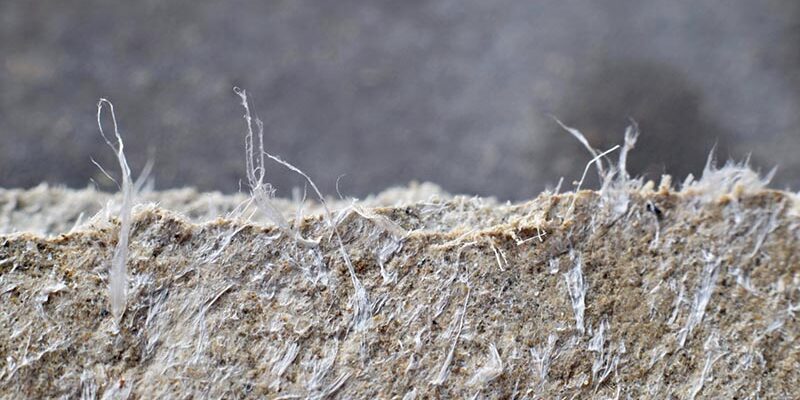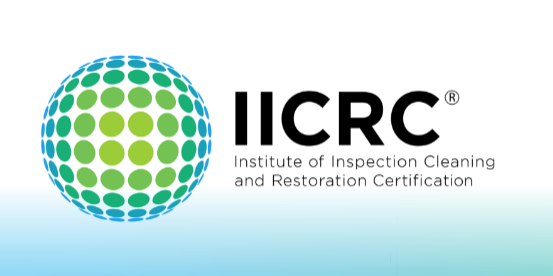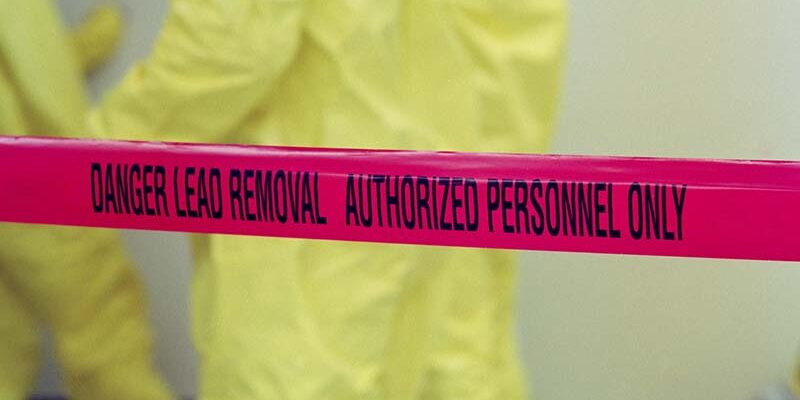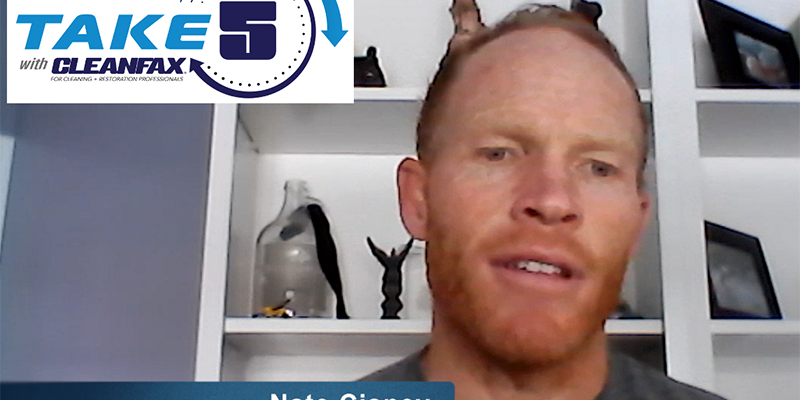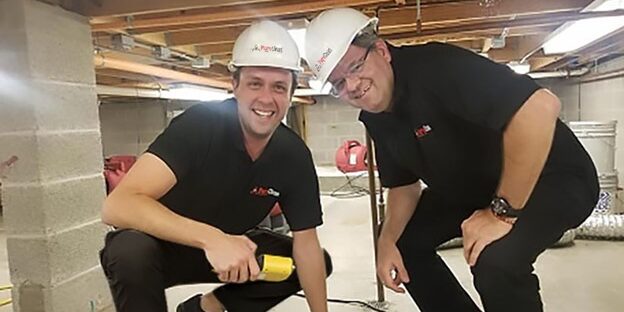2020 Restoration Industry Leaders Review: Remtech Environmental
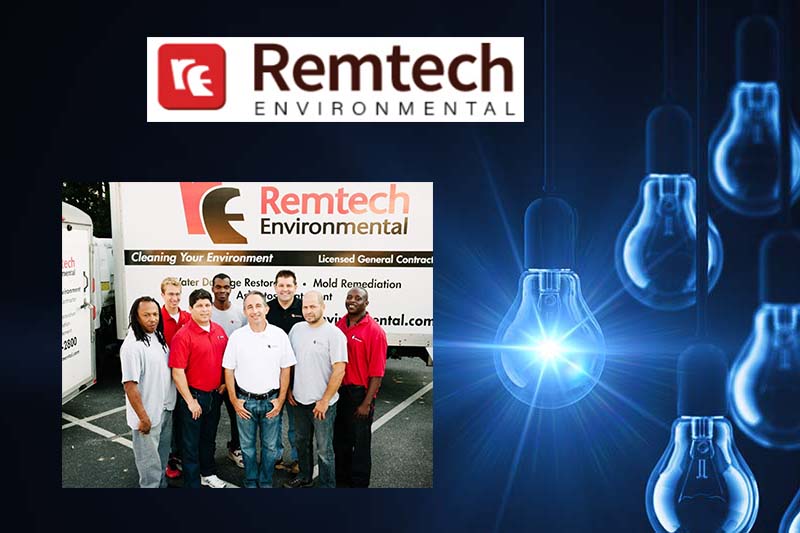
It was 2000, and Bryan King found himself laid off from the environmental company he’d been with for ten years. He had three children under age five, including a newborn. “The way it happened was kind of strange. On a Friday afternoon, my third child was born, and then on Monday morning, me and about 12 other people got laid off,” Bryan explains. He had a degree in industrial engineering and a decade in environmental experience—this was his wheelhouse, and he knew he had to decide quickly what his next move would be. So, he went for it, starting his own environmental services company, Remtech Environmental. Now, twenty years later, Remtech is a strong, respected staple of North Carolina’s Research Triangle (Raleigh-Durham-Chapel Hill) and a shining example of steady growth in the industry.
Risky business
When Bryan first started Remtech, the company focused primarily on mold remediation. He says, “I started my business, and I was very risk averse. I did not want to take much risk at all, so I just tried to find a niche that would sit well with what I knew and what I thought would be responsible.”
It was important for Bryan to limit risk and not overcomplicate the business. In fact, that’s something he recommends for all newer businesses. He points to all the voices telling new companies to “do this and try that.” He recommends picking one or two things you know well and focusing on that to get the ball rolling and then adding a few things as you go.
“There are a lot of services we’ve not added, and we don’t need to,” he explains. “I don’t want to clean a rug or carpet. Guys in this industry do a phenomenal job of that. I’d rather send that work to them, and then they’ll send the work we do extremely well our way.”
Bryan admits he wonders if he should have taken more risks. He says other companies who started around the same time grew bigger and faster by taking big risks. Ultimately, he is happy with his choices, as it is what best suited his situation. “If I were taking more risks, I’d have probably stayed up more at night and probably hurt my health, and I had to think of my wife and family,” he says.
Instead of taking huge risks with his company, Bryan worked to stay in the sweet spot between risky and not risky enough, allowing Remtech Environmental to follow its natural growth patterns. For example, when more manufacturing was being outsourced and vacant facilities were being converted for other uses, he began growing the asbestos abatement portion of the business to handle the growing need for those services. Now that portion of the company is the most popular, though Remtech offers mold remediation, water damage restoration, and radon mitigation, among others. The company runs five trucks with 10-12 full-time staffers nowadays, with a collection of part-time employees at the ready when needed for CAT work or other larger jobs. The company has performed work as far west as Nebraska and as far south as the Bahamas, but most of its work takes place within a 100-mile radius, where it is well known and well reviewed.
Challenges and changes
Bryan has always worked to run Remtech as lean as possible, which more or less shielded his company from both the economic downturn of 2008 and the current economic crisis associated with the COVID-19 pandemic.
Numbers
One problem Bryan had early on in Remtech’s history was obsessing over revenue and the natural ups and downs that accompany the industry in real time.
“I watched the swings of great month, terrible month, okay month, and I would make decisions on that short-term picture,” reports Bryan. “My CPA just looked at things like, ‘this is nuts!’” Eventually, Bryan saw a new CPA, who recommended he take a step back, and he learned to “look for trends that are happening and back away from the trees to look at the forest a little better.”
“After that, we started making better decisions that weren’t reactions, but rather on what was going on the last two, three, four, five months, etc.,” Bryan says, and doing so made it easier to get ahead of and handle the bad times.
Another way the company has learned to stay ahead of things is by implementing systems and processes. Bryan casually worked on putting systems in place for years with some progress but, in the fall of 2019, added a specialist in systemizing businesses to the staff. According to Bryan, “It’s been a game changer.”
Labor
For 19 years. the business was run like a family, which was simultaneously good and detrimental. He says, “It’s kind of like everybody would say, ‘If I can’t get it done, Dad will.’ And I was the dad. Now not everything has to come through me, and it shouldn’t.” Bryan says the company culture is more like a team now, with everyone expected to do their part and improve—and if someone doesn’t, then it becomes time to consider a new teammate. “We’re trying to build a championship team.”
Looking back on the history of Remtech, Bryan says there were a few instances in which he should have let underperforming employees go sooner. “That’s one thing I wish I had done differently. When you know you’ve got a problem and need to fix it, you need to be willing to part ways a little quicker than you want,” he says. “Once you let them go and get the right person, it’s like night and day.”
Finding quality employees, Bryan admits, has been a challenge in recent years, as is the case for most businesses. The company easily found good labor for years, but labor rates have gone up tremendously over the last 3-4 years. Lately the company has had to find new ways to draw in the level of employee it wants.
“We’re trying to be very creative about where we find employees. We are having to ask, ‘What can we do in the job descriptions to help them understand what’s expected?’ And we’re trying to not only offer good pay, but also good benefits like health, a company-matching retirement plan, anything to attract and keep good technicians,” Bryan explains. He’s hoping this brings in good employees, especially with high unemployment and extra unemployment benefits ending.
Expansion
Remtech needs more quality employees perhaps now more than ever as it works to expand into new markets. With all his children now out of the house, Bryan is feeling ready to take more risks than in the past.
“When you’re thinking about feeding a lot of mouths in your house, you don’t want to take a lot of risk,” Bryan says. “But now I can take a little more risk, and I think we can grow a couple of levels. There are a few guys who have been with us for a while, and it would be good to see them be able to move to new levels in the company and achieve what they want to.
“Our capacity right now is really only limited by labor.”
Committed to the people
Like many in restoration, what’s best about the industry for Bryan is the people he interacts with. “Our average customer has never really thought about water damage, asbestos, or mold, but they’ve got preconceived ideas. It’s urgent, and their minds are all over the place,” Bryan says. “It’s fun to educate them. We always let them know their situation is unique, but we will come up with a unique solution. That’s our tagline: Unique solutions for unique problems.”
The happy customers Remtech creates has served Bryan well, too, as word-of-mouth advertising continues to bring in the most new clients.
Bryan also loves being a part of his employees’ lives. Remtech has many long-standing employees, including his head supervisor (19 years), his bookkeeper (18 years), and several technicians (12-15 years). Bryan says, “They’re not just employees. They’re not just technicians. They have complicated lives and families, and it’s just fun to get to know them and get involved in their lives.”
He does admit these two best parts of the industry can also be the biggest headaches—bad employee or an overbearing client. Bryan says, “It’s interesting—your reward and your curse can be in the same place.”
Closing wisdom
Bryan recommends all in the industry really consider who their competition is and extend an olive branch to those other companies who do quality work.
“Who is your competition?” was asked of Bryan during a training seminar a while back. His mind instinctively went to other independent and franchised restoration companies similar to his own. But the presenter pointed out this isn’t the reputable restoration contractor’s real competition, but rather those who say they can do the work but really specialize elsewhere.
“It’s the handyman who’s saying he can do mold remediation. It’s the painter who says he can do asbestos removal. It’s somebody who’s reaching into an area they’re really not trained to do,” Bryan says. He goes on to say other, real restoration companies will value a job at roughly the same cost as you and do roughly as good a job, but the unqualified companies will come in, not do it right, not look after employees, and undercut your price by thousands of dollars.
Bryan adds, “Fellow businessmen in the industry ought to be looking to help each other and not cut each other.”
Our annual profiles of three successful restoration companies are in. Learn why they joined the industry, how things have changed over the years, and what advice they have for others in the industry. Check out the other companies featured in our 2020 Restoration Industry Leaders Review:


